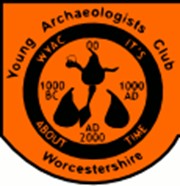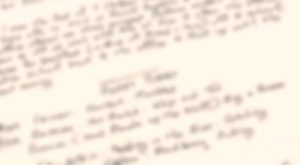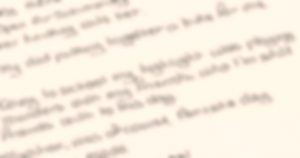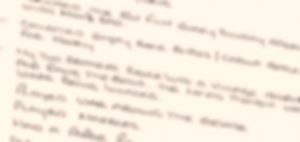Childhood Tales – Family Stories
- 26th March 2022
Worcestershire Young Archaeologists Club have been working on a project, Childhood Tales, as part of the From Ordinary to Extraordinary project, funded by National Lottery Heritage Fund. We have been supporting them with this project and are sharing some of what their members found. This blog looks at what one member found out about the childhood of his family.
have been working on a project, Childhood Tales, as part of the From Ordinary to Extraordinary project, funded by National Lottery Heritage Fund. We have been supporting them with this project and are sharing some of what their members found. This blog looks at what one member found out about the childhood of his family.
As one of the option we encouraged members to speak to older relatives and neighbours (with adult permission!)! There’s all sorts of things you can find out from speaking to people, some of which may be different from what you read in books. James decided to do this, and contacted several members of his family to ask them to write bullet points about their childhood. We asked him – what stood out for you when interviewing your relatives?
I was surprised that lots went to Sunday School, and included that, as it is something I wouldn’t think about today.
My uncle set light to a corn field and didn’t know that. It hadn’t been mentioned in the past so it was something new I discovered.
I didn’t know what ‘scrumping’ was and had to look it up.
I thought it was interesting hearing about building a tree house in the back garden.
My family was in the military and moved around, and lived for a while in Hong Kong.
James interviewed a fair few people in his life. Here are some parts we found interesting.
 “I was born here in Tamworth Staffordshire on Jan: 1935”
“I was born here in Tamworth Staffordshire on Jan: 1935”
“Just one light in the living room otherwise candles although not in the bedroom, in the winter we went upstairs to bed in the dark and got up in the dark.”
 “I was born in September 1934 in Tamworth”
“I was born in September 1934 in Tamworth”
“I went to a girls high school and left at 15 to start work.”
“The games I played were marbles, skipping and whip and top”
 “Going to school my highlight was playing rounders with my friends, who I’m still friends with to this day.”
“Going to school my highlight was playing rounders with my friends, who I’m still friends with to this day.”
“I was one of eleven so money was very short but I never felt we went without.”
 “My two brothers broke into a village church and rang the bells. The locals thought we were being invaded.”
“My two brothers broke into a village church and rang the bells. The locals thought we were being invaded.”
“During summer we were sent out after breakfast and told not to return until 19:00”
“We would go scrumping”
“Most of my childhood was spent fishing or wandering the local fields, and a very enjoyable time was had doing this as I could also watch the wildlife”
“We had a lot more freedom and could roam for hours without our parents worrying, which sadly is not the case today.”
(Click the images to read the original)
You never know what you will find out when you talk to people!
From Ordinary to Extraordinary is part of Shout Out Loud, English Heritage’s national youth engagement programme. Shout Out Loud is funded by the National Lottery Heritage Fund’s Kick the Dust programme. http://shoutoutloud.org.uk


Post a Comment